
The Graben Café toward the end of the XIX century.
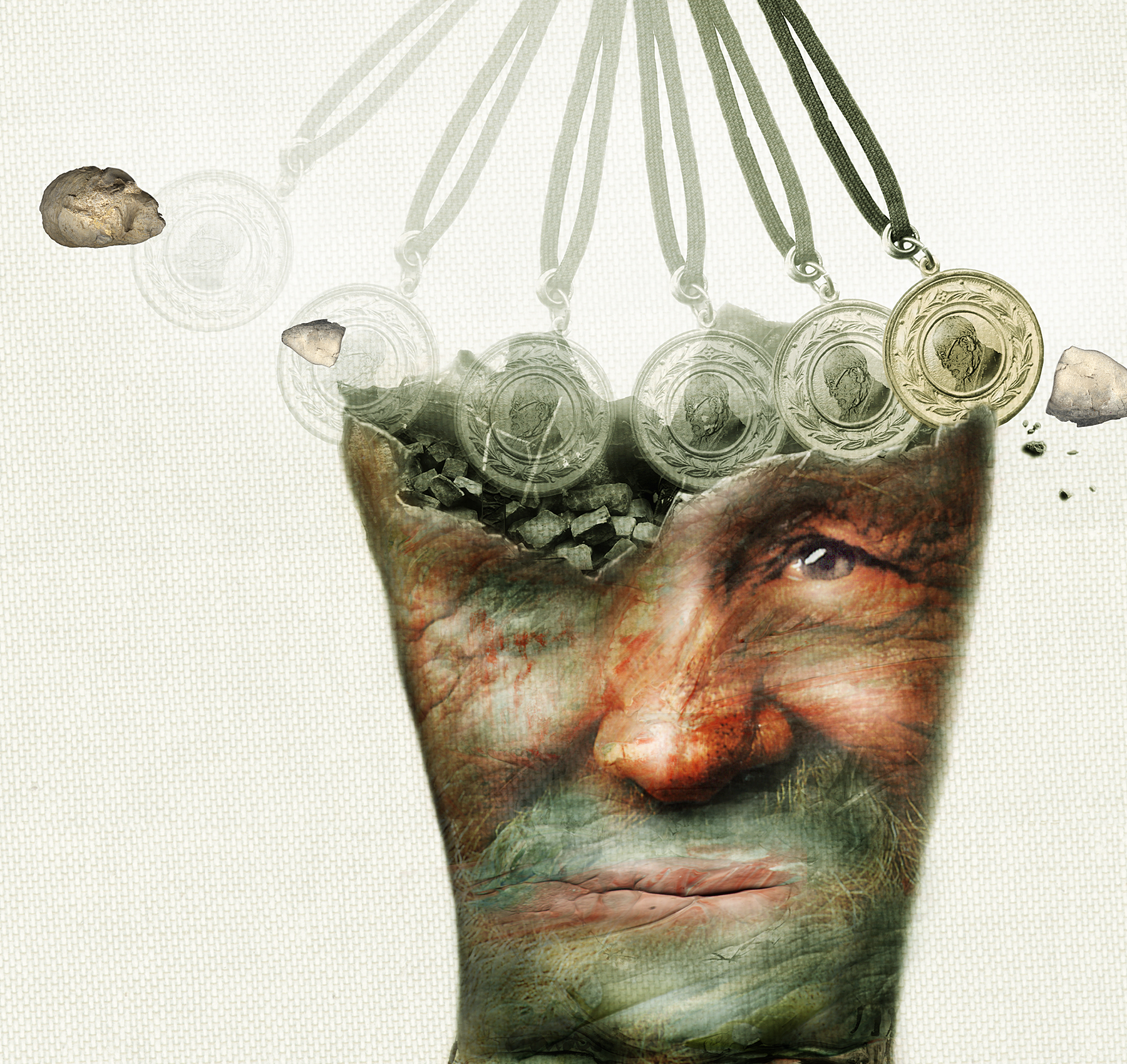
Gratuitous psychoanalization for everyone.
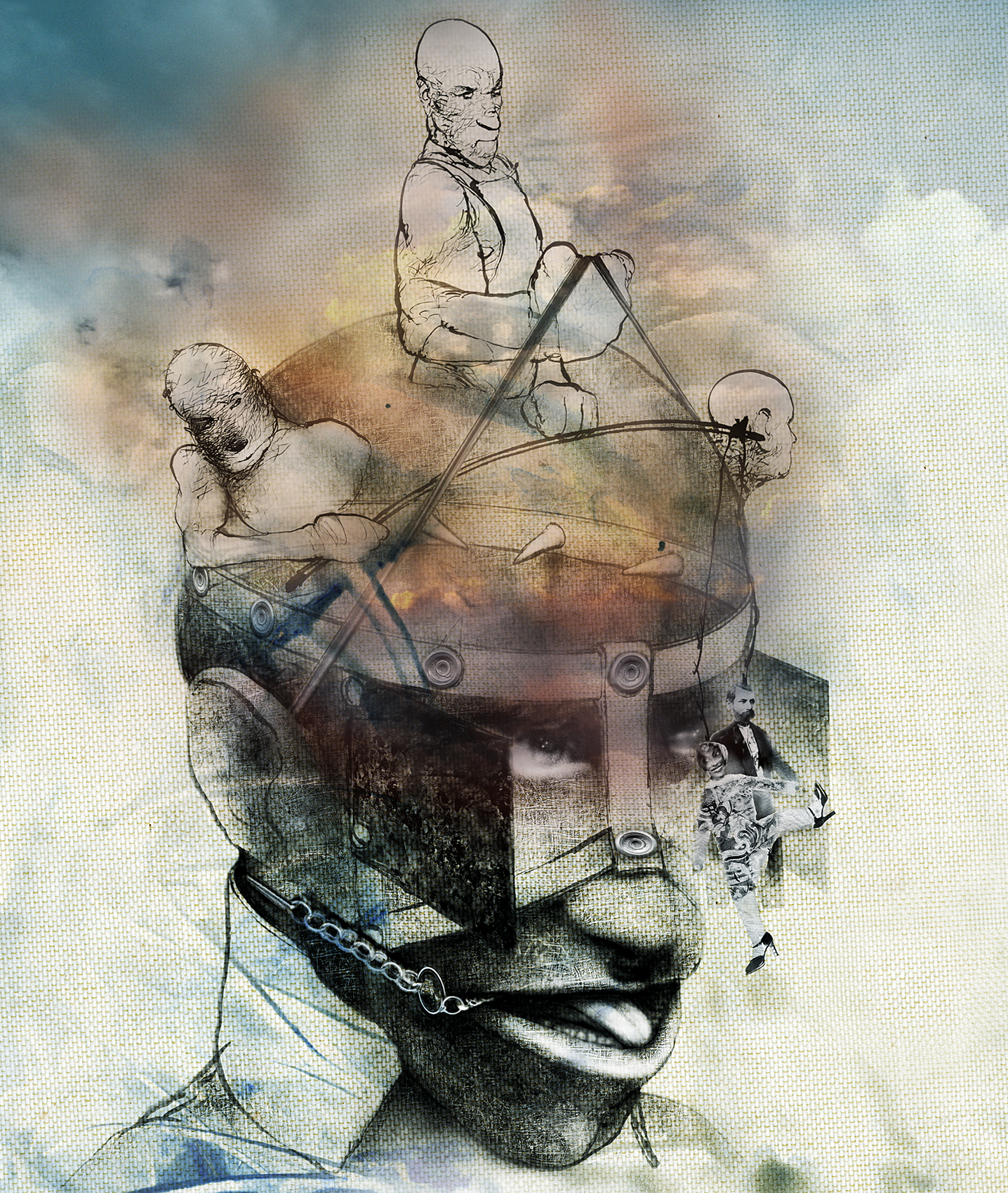
If “...it is our dreams that determine reality...”

Psychoanalysis: the System by which the World orbits around Freud’s mother.
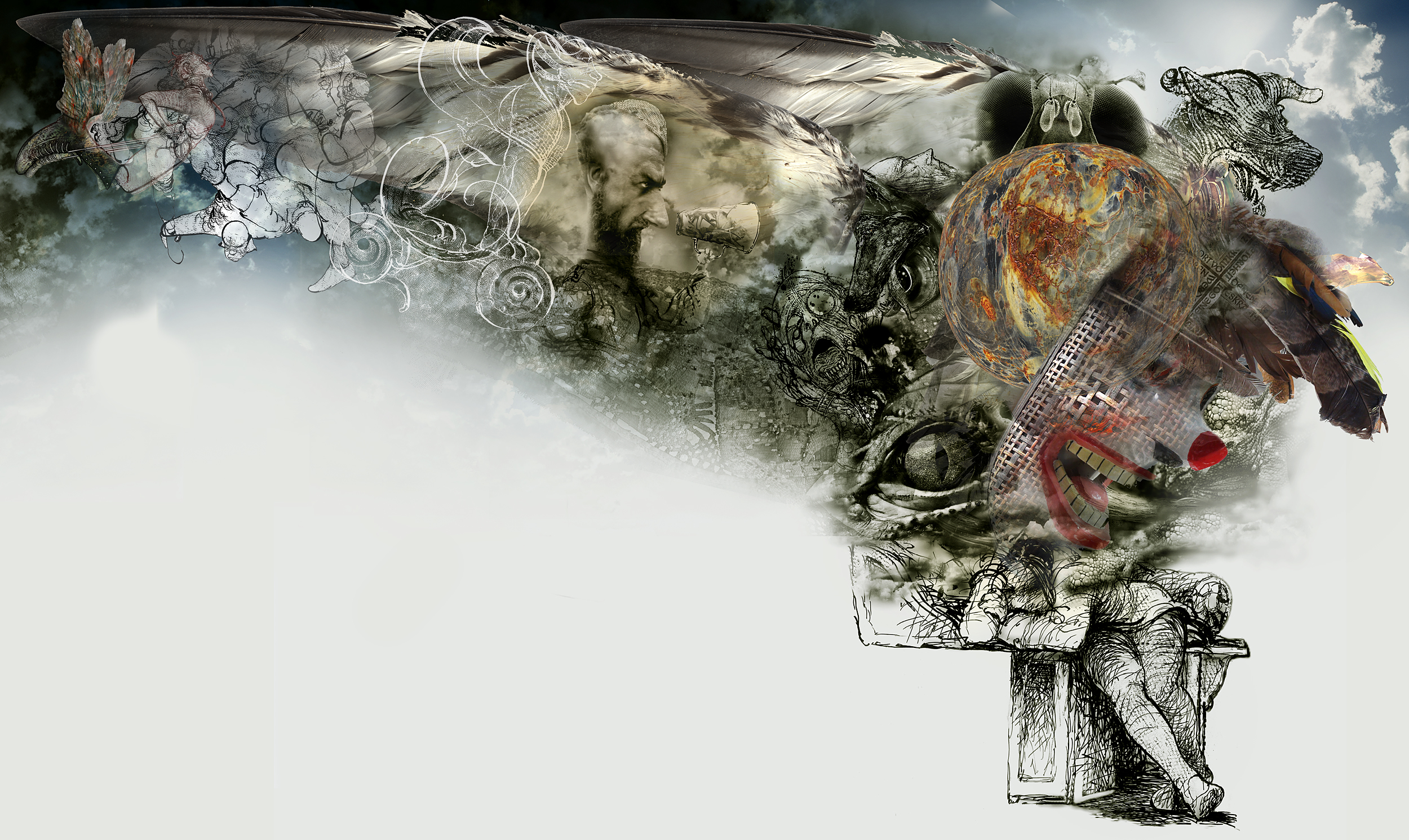
Streger, during a trip to Alsace, began invading residents’ dreams.
His appearances recurred so frequently that people were soon aware of what was happening.
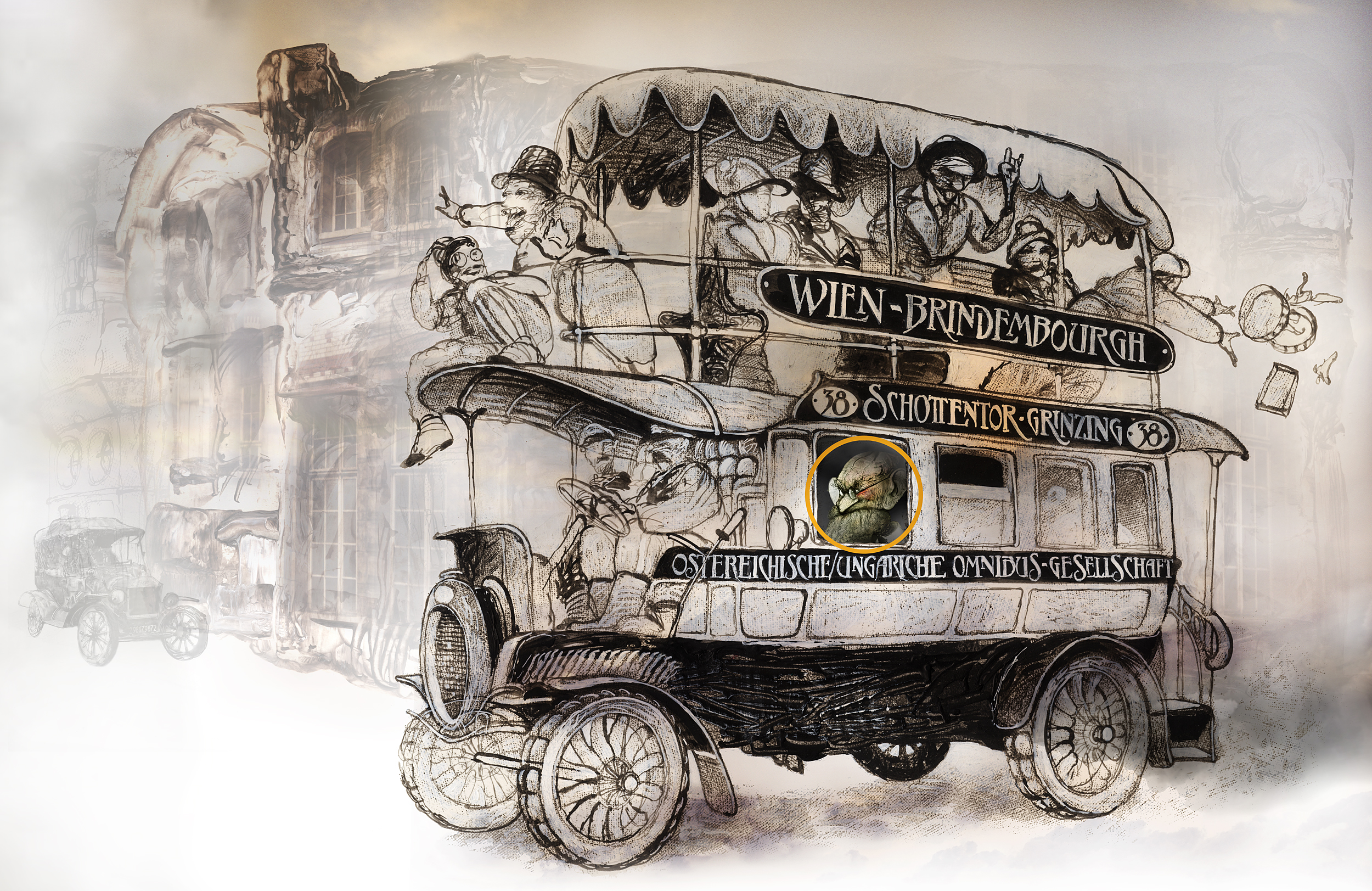
In 1921, Streger got the idea of inviting Sigmund Freud to Brindenbourgh
The latter, flattered and unsuspecting, was happy to accept.
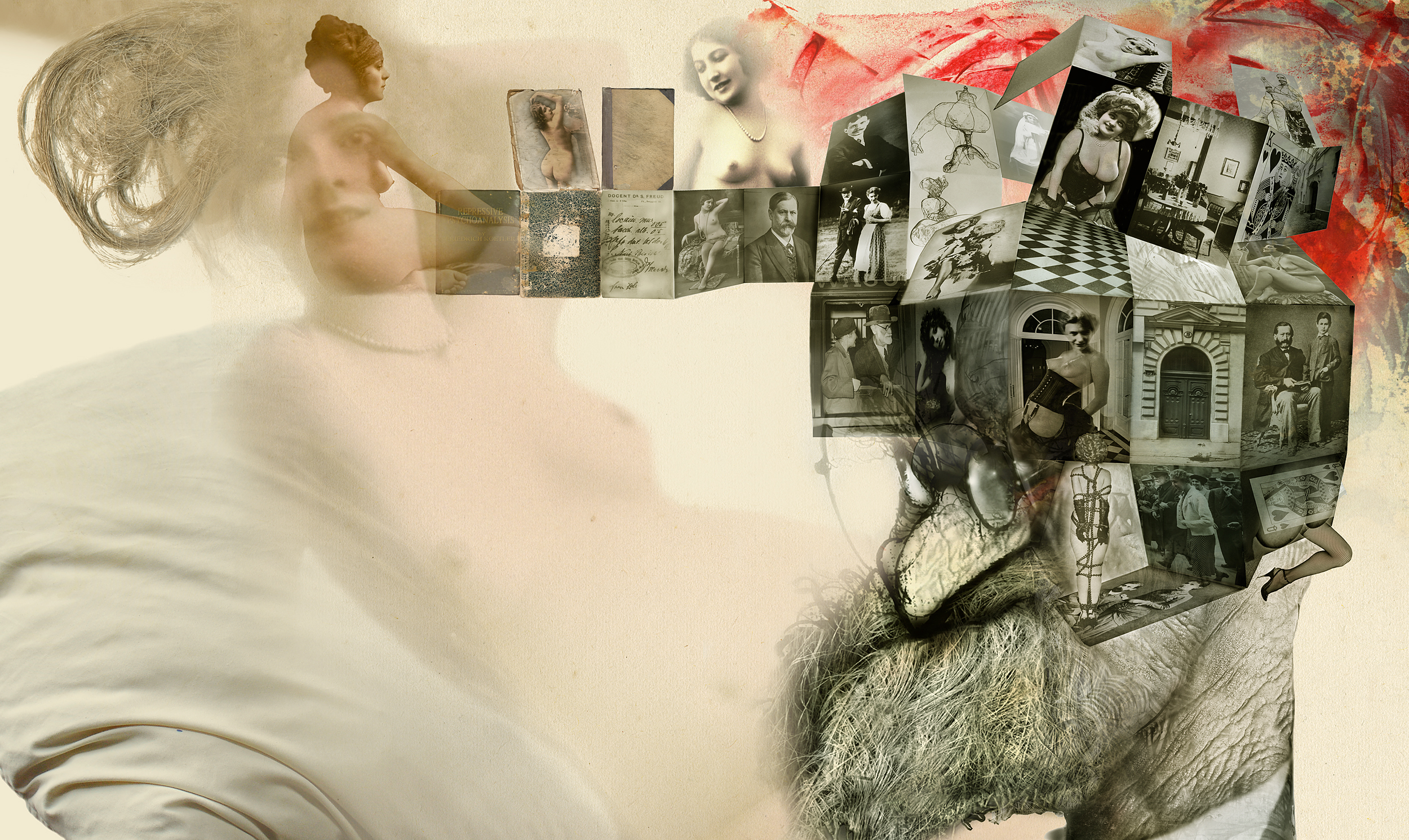
We now understand Freud’s true motives:
to create a business in which the customer was always wrong.
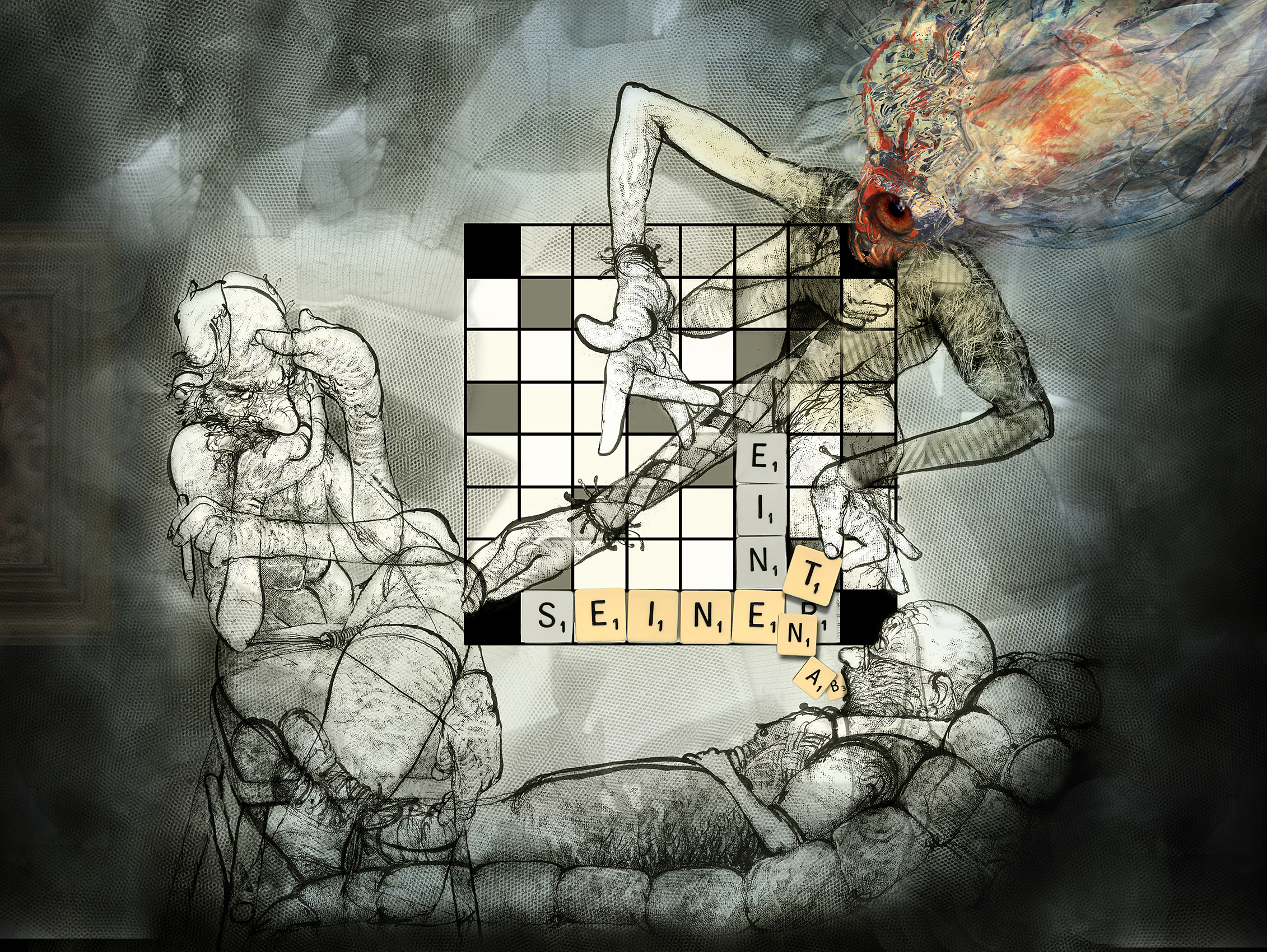
Tired of being anonymous, the unconscious,
in a game of verbal hide and seek, leads the specialist —never a lay person— with slips, even suspicious omissions, until it succeeds in giving itself away.

In an old book Freud found an oriental proverb that became the pillar of his doctrine:
“He who knows keeps silent; he who speaks knows not.” This adage inspired the idea of elevating silence to the category of a profession (1892), something completely new in the history of humanity.

With the seeds of despair and madness already implanted in post-industrial mentality
this fabulous delirium of Selves, Electras, Narcissi, Oedipuses, Wolf Men and Superegos was accepted without question, quickly becoming a collective Utopia —an ersatz science that would never produce demonstrable results.

They were now in the psychological dimension, inside Freud’s psyche.
“All this pollution will soon seep into reality,” Koetler predicted.

The crash of objects falling into the street revealed that Streger had lost control of himself.
“This man is an imbecile!” he shouted, beside himself. “What an outrageous fantasy!”

Psychoterminal at the height of the season.
The proverbial human fascination with the morbid led other patients and neighbors to participate in those trips. Numerous groups of people entered and left Freud’s interior.

The Erotic Conspiracy
During one of the expeditions, he surprised the crew by telling them that they would attempt to press toward a deeper level of consciousness: the unconscious of the individual selves. Was it possible that selves could be manipulated in turn by forces they were unaware of? It was a tense moment.

The return trip was torture for him.
Every kilometer of consciousness that separated him from his beloved caused him greater anguish. For days he went about tripping over things, glands aflame, choking for air, while his soul panted after that fantastic woman in some distant confine of that abominable psychiatrist.

Streger was somewhat less compassionate toward the enamored swain:
“Look, ” he said, “that glittering parcel of pearls, pins, creams, earrings, nail polish, eyeliner, necklaces, wigs, lipstick, bracelets, tulle, lace, falsies and embroideries... Aren’t you just a little suspicious of such a fancy package?”

He was surprised to notice how everything had changed. The selves were having their annual dance.
Some partygoers: Toulouse Lautrec with two can-can dancers and on your right, “The Goddess of Silicon. ”

Somewhat intimidated by so many celebrities, Koetler simply shook every hand extended.
The obvious mixture of fiction and psychoanalysis that had shaped the guest list corroborated his hypothesis that Freudian prototypes were of literary origin.

Judging by the flow of arriving guests, the party has just begun.
Here, the entrance of the “Rabid Fetish.” To the right, The King of Joy, and again, Queeny Manfred, out of Fraud’s closet queens.

Followed by Friedrich Nietzsche,
probably the most damaged victim by Freud’s intellectual encroachings. Lautrec’s Ivette Guilbert escorts him.

“What king,” he thought, “would not envy the domain of a single one of these famous tyrants?”

Note the permanent mutation of the sex object, Helga,
eternal Phoenix of amorous desire

A sharp pain in the lower abdomen of the flesh-and-blood Freud made him hurl the book he was reading against the wall.
He went to the window, crossed his arms behind his back and stood there thinking how ridiculous it was that his outburst had been so far in excess of the physical pain he had suffered. “There is more here than meets the eye,” he concluded.

The “exchanging of balloons”: end of Freud’s childhood innocence.
That night his shots lit up the outskirts of Brindenbourgh until daybreak. Inside that body blinded by hate, oblivious to the noise, Koetler and Helga were making love.

“No doubt about it.” he concluded after studying them carefully. “They’re three sizes larger than mine.”
“Suspicion...” Koetler was to write in his diary, “what is suspicion but unconscious certainty?”

Freud spent the following days immersed in conscious anxiety caused by the violation of his unconscious.

The Freudian archives.

Helga’s legendary smyle, with some of her memories and repressi•ns.

“No one but I,” thought the diva, “has been closer to Goethe’s “Eternal Femininhe1”
According to biographer and historian Adolph Hansen,“Generously, passively, Helga allowed herself to be loved, savoring more the pleasure she imagined in that beast thrilled by the possession of such an appetizing morsel as herself than by the physiological pleasure that may have been provoked by that rudimentary and modest male organ.”

“Helga,” Koetler’s voice broke through her reverie. “We can’t go on like this. I want to marry you, to give you a decent home...”
“Are you asking me to abandon Sigmund?”
He did not answer, inflamed by that strange degeneration of solitude called love.

Koetler, made Freud envisioned himself as the Return of the Spirit of Carnival.

A violent catharsis; the long intuited certainty became reality.
The unconscious magma hurled up phrases, incomprehensible roars and rages that lodged in his throat, all but paralyzed by his automatic angst. A singular paramnesiac abreaction, the impious images converge on Freud’s consciousness, before the inexplicable dimensional achievement of his star, Helga.

“How much must I pay you to keep your mouth shut?”
“The reaction of an intelligent man,” Streger said, putting his arm around the psychiatrist’s shoulder. “Come with me...”

Freud’s emotional instability
—euphoria, depression or simple melancholy— sucked her back into the psychic niche from which she had been pried. These recurrences exasperated Brother Daniel, who stepped up his regimen of penances, torments, subjugation and humiliations, going so far as to give the analyst the terrible Gauss enema.

the famous American behaviorist E. P. Gelber to prescribe the reclusion of the couple in the universe of literature
the only public place capable of discouraging the exhibition of those aberrant sexual practices.




































